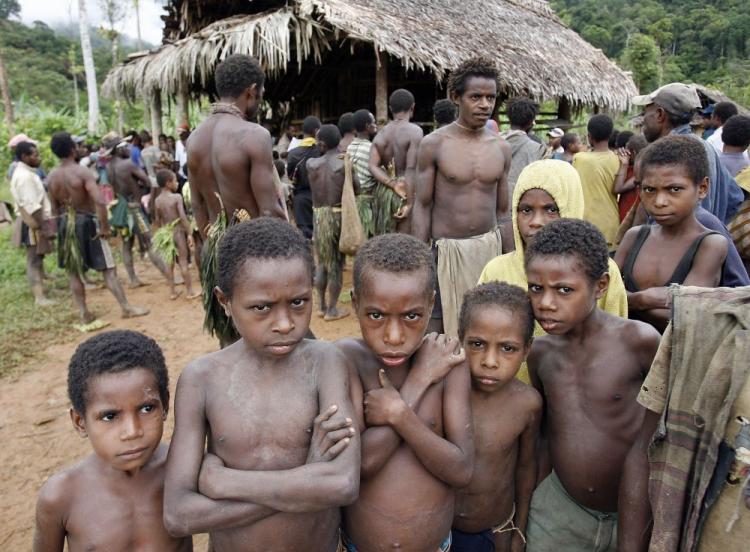Cholera Outbreak Worsens in Papua New Guinea
A cholera outbreak in the remote regions of Papua New Guinea has gained pace spreading to more populated areas.

Children from the primitive Andai tribe of hunter-gatherers wait for their parents to vote at the Kaiam village polling station in the East Sepik Province during Papua New Guinea's general election, July 5, 2007. PNG is the most culturally diverse nation on earth with over 800 languages spoken by the population of nearly six million�many of whom are living in extremely remote highland and island communities. Torsten Blackwood/AFP/Getty Images
|Updated:





